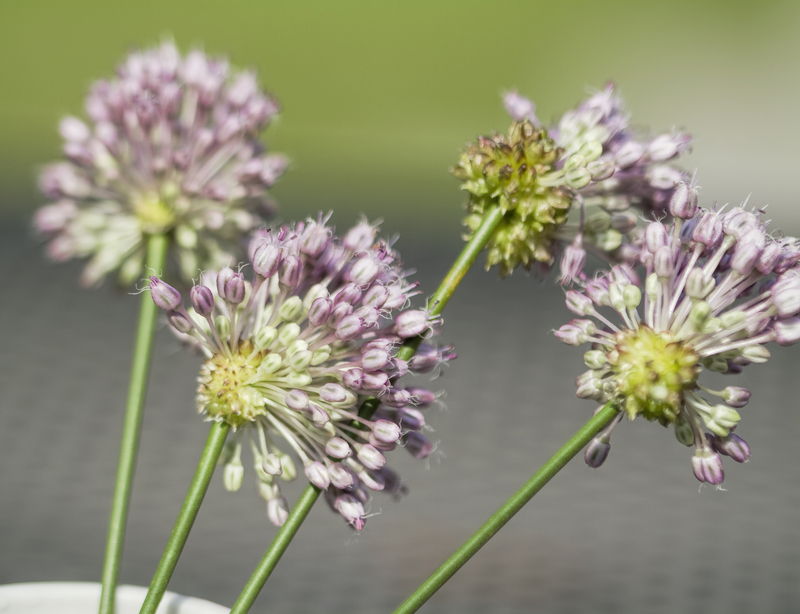Front Yard Transformation: 12 Top Tips for Garden Design
Are you dreaming of a stunning green oasis right outside your doorstep? A well-designed front yard not only boosts your home's curb appeal but also creates a delightful welcome for guests and a personal sanctuary for your family. If you're ready to give your outdoor space a major upgrade, this comprehensive guide to front yard garden design will inspire and inform you. Discover our top 12 transformative tips for crafting a lush, inviting, and uniquely personal front yard garden!
Why Focus on Front Yard Landscaping?
Your front yard garden design serves as the first impression of your home. Whether classic, contemporary, cottage-inspired, or drought-tolerant, a thoughtfully designed landscape can:
- Increase property value through instant curb appeal
- Create a welcoming atmosphere for visitors
- Reflect your personal style and preferences
- Encourage biodiversity with native plants and wildlife habitats
- Provide you an outdoor retreat to enjoy year round

12 Top Tips for Front Yard Garden Design
1. Analyze Your Site
Before you start your front garden transformation, take time to observe your yard. Notice how sunlight moves across your property, evaluate your soil type, and identify any problem areas, such as poor drainage or heavy shade. A thorough site analysis is essential for selecting the best plants and layout for your space.
2. Define Your Style and Function
What kind of feeling do you want your garden to evoke? Is it modern and minimalist, or lush and traditional? Consider how the space will be used -- for entertaining, relaxing, or as a playful zone for children.
- Contemporary front yard gardens: Clean lines, geometric shapes, and simple plant palettes
- Cottage-style gardens: Overflowing borders, colorful blooms, and whimsical accents
- Xeriscape front yards: Drought-resistant plants and natural materials
3. Plan Inviting Pathways
Pathways are both functional and aesthetic elements of a front yard landscape design. Thoughtfully planned walkways guide guests from the street or sidewalk to your door, while also structuring your garden beds and lawn areas.
- Materials: Consider using natural stone, brick, gravel, or poured concrete for your paths.
- Curves or straight lines? Gentle curves can create a sense of journey and visual interest, while straight lines can convey modernity and directness.
4. Prioritize Plant Layering
For a lush and visually pleasing garden, use layering techniques. Arrange plants in tiers, with taller trees and shrubs at the back, medium-height perennials in the middle, and low-growing ground covers at the front. This not only maximizes greenery but also makes maintenance easier. Varying textures and colors across layers adds dimension and year-round appeal.
5. Select Native and Drought-Tolerant Plants
Choosing native plants and drought-resistant species is both eco-friendly and low-maintenance. These hardy varieties thrive in local conditions and require less water, fertilizer, and attention.
- Research indigenous plants in your area for best results
- Combine evergreens for structure with seasonal flowers for color
- Incorporate ornamental grasses for movement and softness
6. Design for Year-Round Interest
A successful front yard garden design offers visual appeal in every season. Mix plants with different bloom times, attractive foliage, and interesting bark or berries. Don't forget evergreens, which keep your landscape looking full and structured throughout winter.
- Spring: Bulbs and flowering trees
- Summer: Perennials and annuals
- Autumn: Ornamental grasses and fall color shrubs
- Winter: Evergreens and berries
7. Incorporate a Focal Point
A focal point draws the eye and gives your garden structure. This could be a striking tree, a beautifully pruned shrub, an eye-catching sculpture, or a water feature. Position focal points strategically to anchor views -- for example, at the end of a path or directly in front of a window.
8. Frame Your Entryway
Your front door is the heart of your front yard landscape. Frame it with symmetrical plantings, decorative pots, or a graceful archway covered in vines. Defined entryways signal a sense of arrival and set a warm, welcoming tone for visitors.
9. Add Lighting for Safety and Ambience
Outdoor lighting isn't just for nighttime curb appeal -- it keeps your home and guests safe while highlighting your beautiful garden features.
- Path lights: Guide the way along walks and driveways
- Spotlights: Showcase trees, sculptures, or architecture
- Accent/fairy lights: Add whimsical touches to shrubs or trellises
10. Balance Hardscape and Softscape
A premier garden design blends "hard" and "soft" elements -- think patios, walkways, fences (hardscape), as well as plantings, lawns, and mulches (softscape). Balance is key:
- Too much hardscape can feel cold and unwelcoming
- Too much planting can become unruly and hard to maintain
11. Manage Privacy and Views
Does your front yard feel exposed to neighbors or the street? Smart garden design can create a sense of seclusion without building high walls. Use layered plantings, low hedges, ornamental grasses, or trellis screens to frame nice views while adding privacy where needed.
12. Personalize with Finishing Touches
Finally, make your front yard garden uniquely yours! Integrate decor that reflects your personality, such as:
- Colorful pots, birdbaths, or garden art
- Benches or swings for relaxing
- Mailbox gardens or house number plaques with surrounding plantings
Design Mistakes to Avoid in Your Front Yard Makeover
While reimagining your front garden design, steer clear of common pitfalls such as:
- Overcrowding plants, which can stunt growth and block sightlines
- Neglecting walkway functionality -- keep paths clear, safe, and wide enough
- Disregarding the mature size of shrubs and trees
- Using high-maintenance species unless you're ready to invest extra time
- Ignoring harmony with your home's architecture
The Lasting Impact of a Front Yard Transformation
A front yard transformation goes far beyond cosmetics. It's an investment in your home's value, the local environment, and in daily joy for you and your family. Modern front yard landscaping can minimize water use, support pollinators, and even reduce neighborhood noise and pollution.
- Start small: Even modest changes like new perennials or a refreshed mulched bed can make a big difference.
- Work with professionals: For complex projects, consult a landscape designer to get the best results.
- Stay involved: Personal attention and care bring out the heart of your garden -- and it shows!
Front Yard Transformation: Real-Life Inspiration
Before-and-after stories provide great motivation for your own front yard makeover. From neglected lawns turned into pollinator-friendly meadows, to compact city spaces transformed with raised beds and vertical gardening, possibilities abound. Explore online galleries, garden tours, and neighborhood walks for fresh ideas and local plant recommendations.

Frequently Asked Questions About Front Yard Garden Design
How do I design a front yard on a budget?
Reuse existing materials, start with small changes, and grow from seeds or cuttings. Concentrate your efforts near your entryway for the highest impact.
Are there plants that are both low-maintenance and high impact?
Absolutely! Native plants, ornamental grasses, and evergreens are easy to care for and provide lasting beauty.
How do I keep my front yard garden looking good through every season?
Incorporate a mix of plants with staggered bloom times, and use evergreens or interesting bark for winter interest. Mulch to suppress weeds and conserve moisture.
Conclusion: Start Your Front Yard Transformation Today
With the right approach and inspiration, your front yard garden design can become the envy of the neighborhood and your personal haven. Use these 12 top tips to guide your journey:
- Analyze your site for sun and soil
- Define your garden style and functions
- Create welcoming, functional pathways
- Layer your plantings for lushness and easy care
- Choose native and drought-tolerant plants
- Design for every season's interest
- Add focal points and architectural structure
- Frame your entryway for a warm welcome
- Enlighten your space with practical and decorative lighting
- Balance hard and soft landscaping
- Manage privacy and beautiful views
- Personalize with final touches